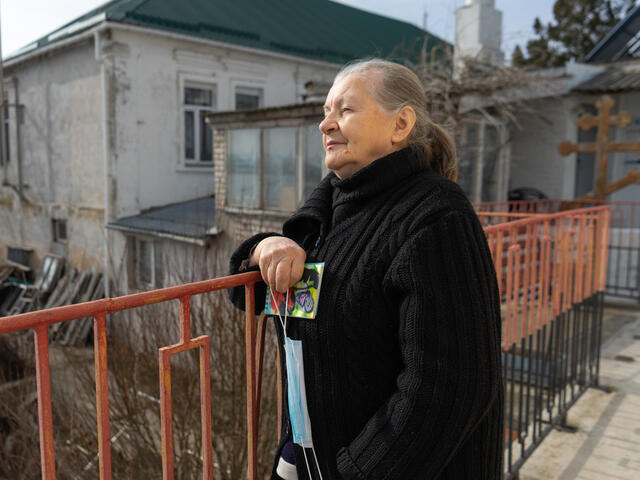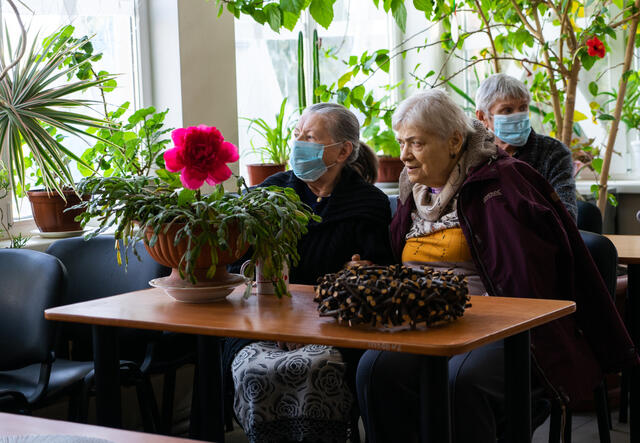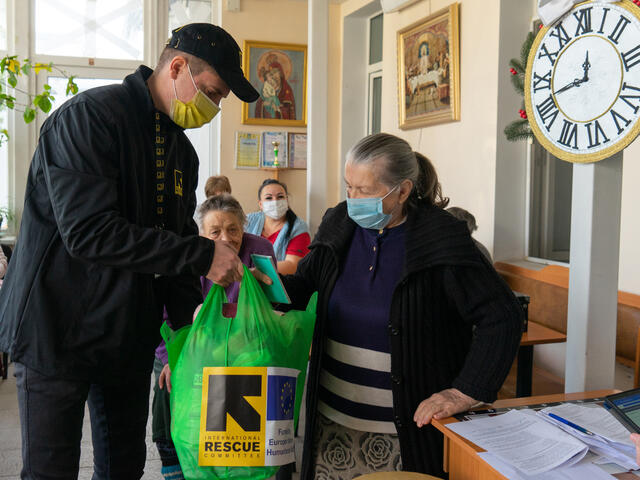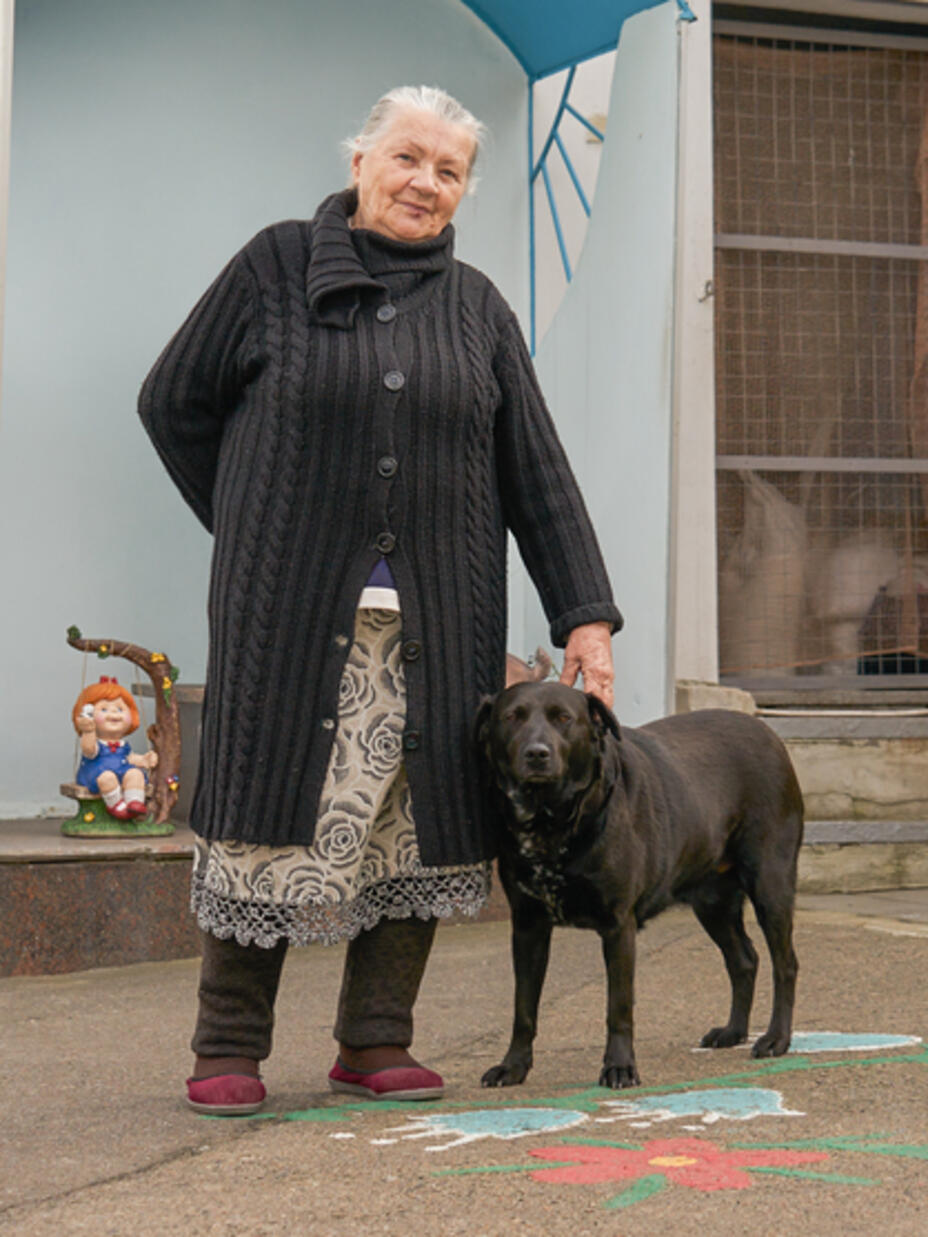
What it’s like to experience war from a nursing home in Ukraine
Read the experiences of Alla, an 84-year-old resident of a nursing home in Mykolaiv, as she copes with the ongoing war and tries to stay positive.

Read the experiences of Alla, an 84-year-old resident of a nursing home in Mykolaiv, as she copes with the ongoing war and tries to stay positive.
Alla, 84, was standing in the corridor of her nursing home when their building came under attack. “It was awful for me, the fire, the rockets,” she shares. “And I was standing in the corridor and saw through the window how it was flying, how everything was burning.”
One of the explosives fell directly into the nursing home bathroom, but thankfully, none of the elderly residents were in there at the time.
Since the escalation of the war in Ukraine, widespread damage to homes and infrastructure have made housing conditions more perilous for people like Alla. Inside the country, millions of people are struggling to access clean water, sufficient food, medicine, and other essential items. As violence continues to impact the lives of civilians, the European Union (EU) and the International Rescue Committee (IRC) are working together to deliver lifesaving emergency assistance.

Alla has now experienced two wars in her lifetime: the Second World War and this one. She remembers the ending of the previous war, when Mykolaiv was liberated and people were throwing flowers at the soldiers as they returned from the battlefield.
The current war has shocked and devastated her.
I would tell you that all this news, it’s such horror. I can’t watch it without tears… How many children died… How many children were injured, and how many were left without parents? It’s scary, very scary.
Alla’s son died 21 years ago, so she understands the feelings of loss that many families are feeling. Though she has cousins, they are all elderly and ill. With no close relatives to care for her, she came to the nursing home by herself eight years ago.

In her life before retirement, Alla had worked as a river traffic controller and studied how to work on the first computers, before getting promoted to be an engineer. She recalls loving the problem-solving aspect of her work.
At the nursing home, Alla is an active member of the community, and though she is one of the oldest residents, she often helps take care of some of the other people who live there. She loves animals and enjoys playing with her dog Nika, watching TV, attending in-house concerts, reading, and solving crossword puzzles.
She is grateful for the nursing home staff, who have created a caring environment for her and the other residents.
“We have amazing people here,” she shares. “Our director, our cooks, our nurses. They are very good, they have such a good attitude towards us.”
In Ukraine, over 30% of people in need of humanitarian assistance are over the age of 60, making it the “oldest” humanitarian crisis in the world. The EU, together with the IRC, are ensuring the elderly have access to the vital assistance they need to stay healthy in their day-to-day lives and endure the ongoing war.
With funding from the EU, the IRC has delivered blankets and hygiene kits to nursing home residents and also, has helped nursing home residents identify their legal needs.

As the war shows no end in sight, it’s Alla’s energetic attitude and care for others that keeps her going.
“We have to live. Don’t give up and support others. For example, the new woman who came here told me: ‘I have such a bad memory’ and I replied: ‘No worries, me too!’ But when I think a lot, I recall things, and words.”

The International Rescue Committee partners with the European Union to provide life-saving support to people caught in conflict and disasters around the world. Our work funded by the EU enables people to survive, recover and rebuild their lives.